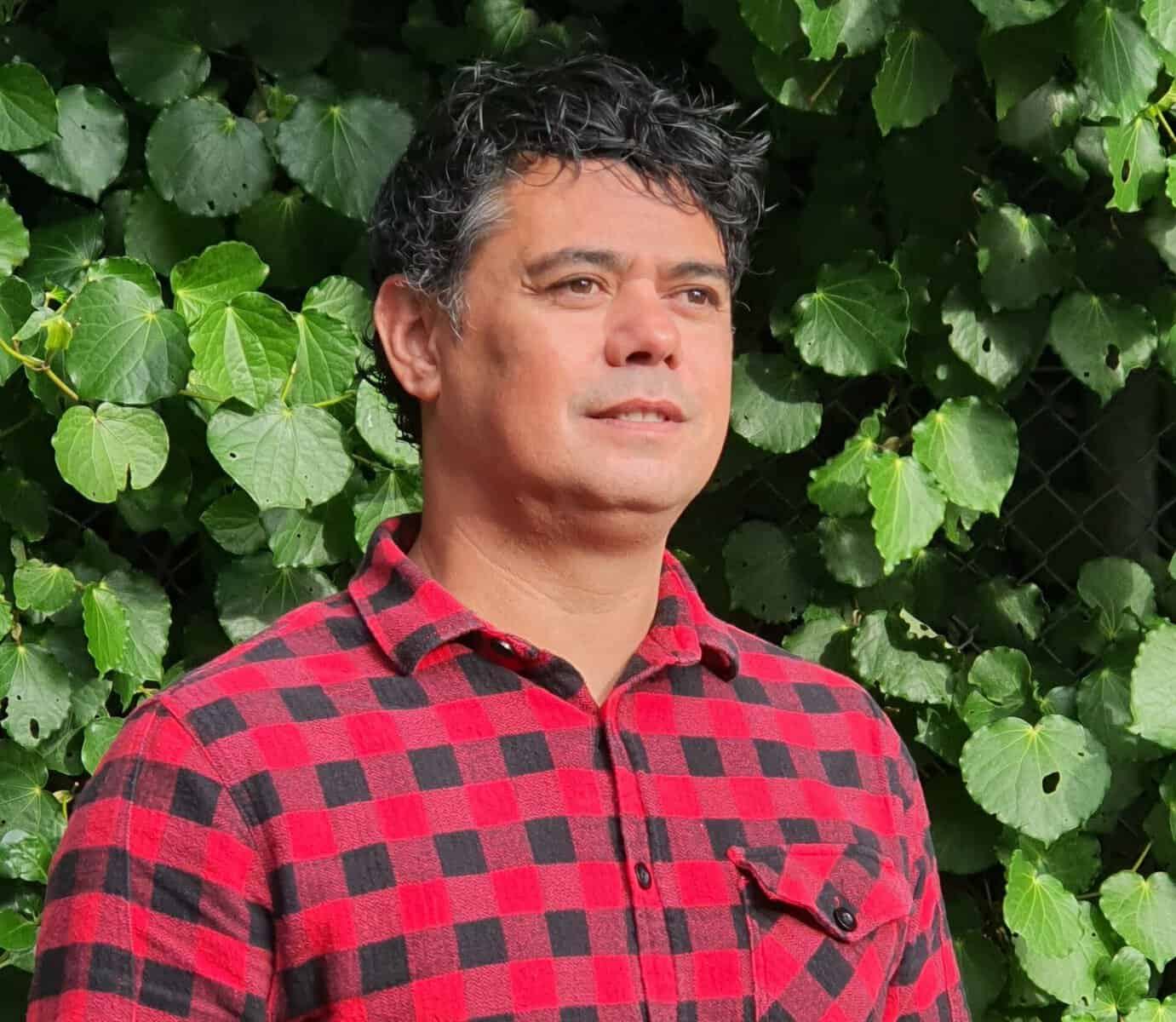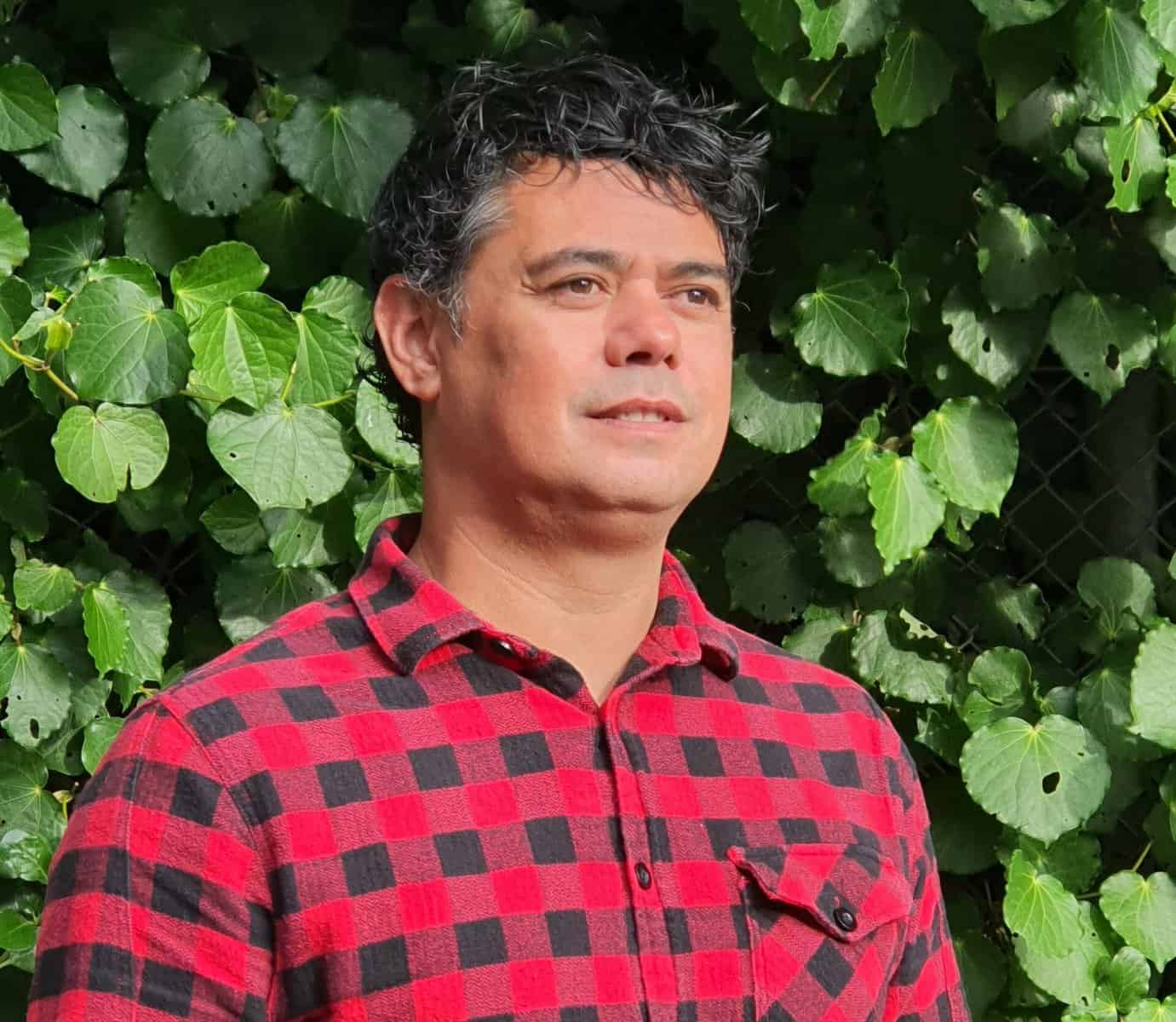Alan did not arrive in tertiary education immediately after concluding his secondary studies.
“I did lots of little jobs before it occurred to me that maybe I could go to university and try something new,” he says.
When he started at Te Herenga Waka – Victoria University of Wellington, he cast his academic net wide, going with whatever courses felt right.
“I did history, I looked into doing museum studies, but I also did a Māori studies paper, which was sort of an introduction to New Zealand history with a kaupapa Māori lean to it.”
His love for this course led him to more Māori studies courses, which became the foundation of his undergraduate degree and his Honour’s. He assumed when he started his studies that he would stop at Honour’s. However, a summer project in Māori customary precedence for pest control showed him he could go even farther.

“I found the project quite exciting,” says Alan. “We knew there were some oral histories out there that spoke of invertebrates in particular, but we didn’t know specifically whether there were actually pest control efforts done by people during pre-European times.” The results of the project are explained in more detail here.
With Alan’s interest in research piqued, Ocean Mercier (Ngāti Porou) asked him if he would like to complete a Master’s project about wasp biocontrol funded by BioHeritage.
“I never had anything to do with Western Science, but I thought, well, if Ocean thinks I can do it, I’ll give it a go,” Alan says.
Alan’s Master’s looked at what religious and spiritual Māori think about certain wasp biotechnologies. His study complements a suite of social perception studies being completed under Novel Tools & Strategies – Invertebrates to understand what different groups think about different biotech tools. This insight is being used to understand the social obstacles and impetus to implementing new technologies.
Alan’s Master’s has informed the research he is currently working on for BioHeritage with Ocean and Symon Palmer (Ngāi Te Rangi) in the invertebrates team.
“Under Ocean and Symon, I’ve done some work this year and at the beginning of last year connecting with Māori beekeepers and finding out whether or not they would consider RNA interference (RNAi) as a viable way to eradicate the varroa mite,” says Alan.
One of the consistent findings that has come up in many of these studies is that the language of biotechnology, specifically the language of RNAi, presents an obstacle for social uptake.
“If people are unfamiliar with the terminology, they tend to either suspend their judgement or not support it at all,” says Alan. “Effectively communicating these techniques is a challenge, but there are some great new tools that are being developed to help in this area.”
Alan is also working with Ocean and Sara Belcher (Te Arawa) on a Predator Free 2050 project that seeks to capture the range of social perspectives around single sex offspring selection in Norway and ship rats.
“We’re very much in the initial research stage for this project,” says Alan. “We’re collecting what knowledge has already been recorded and deciding what interview methods to use with communities.”
As Alan has developed an expertise in this area, his PhD-wielding colleagues have begun suggesting that he too could take the plunge.
“For me personally, I don’t really see that a PhD will improve my access to opportunities,” he says. “If I did do one, it would have to be a project that I absolutely loved. I’m pretty sure they do exist, but none that I’ve encountered so far have pushed me over the line.”
For now, he is enjoying living in the moment.
“I love being around the people who I work with,” says Alan. “I love the way that they think and the work that they do. I’m always excited to hear about the mind-blowing projects that I’m not involved in. I’ve really got an open mind about what my next step may be.”
– Jenny Leonard
